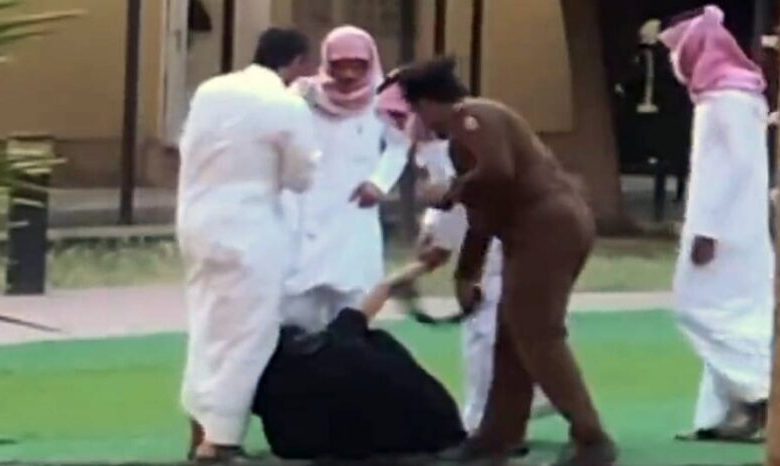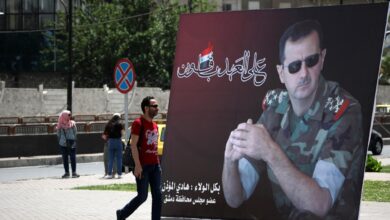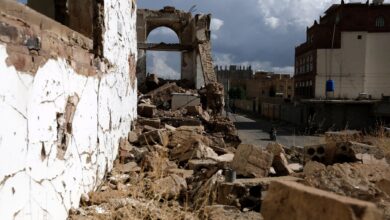Assaulting Khamis Mushait orphans provokes massive rights condemnation.

Human rights organizations strongly condemned the crime of attacking the inmates of the Khamis Mushait orphanage and the publication of shocking videos of Saudi security forces beating and dragging orphans in the Asir region.
ALQST Organization for Human Rights said that it followed with great concern the video of the unfortunate events in the Khamis Mushait orphanage, including the storming of security men and the assault on girls who protested against the poor conditions.
The organization called on the Saudi authorities to hold those involved in the incident accountable and to investigate the causes that led to it.
Security men and masked men violently beat several girls in the Social Education House in the Khamis Mushait area.
Video clips spread on social media showing the use of tools, including ships and sticks, in addition to beatings and hair pulling against girls in the home, which is mainly responsible for caring for orphans.
The clips also showed the men threatening the girls who were documenting and filming the assault.
According to the information, some girls had previously filed complaints against the home directory, and several girls also demanded their rights. They rejected the rampant administrative corruption, and when they were not responded to, a strike was announced, which prompted the management of the home to use violence with the sponsorship and participation of security men.
Tweeters also confirmed that girls had been subjected to continuous abuse, including insults and psychological harm.
The European Saudi Organization for Human Rights highlighted that this incident comes in the context of violence against women in Saudi Arabia on more than one level, including domestic violence without adequate protection, torture in prisons and ill-treatment in official institutions.
The organization considered that despite the announcement by the governor of the Asir region to open an investigation into the incident, it is impossible to trust that the violators will be held accountable in light of the judicial system’s flaws and the lack thereof of effective accountability.
The organization explained that several battered women had reported similar violations in official institutions, including care homes, and the violators were not held accountable.
In addition, the organization documented the shortcomings of the official systems that the Saudi government said protect women from protecting them for several reasons, including a lack of trust in official agencies and a lack of awareness of rights and these laws.
While many activists indicated that the girls who documented the assault were prosecuted, the organization expresses fears for their safety and freedom, as it previously monitored the prosecution of female activists on charges of distorting the image of official institutions and the state after publishing similar information.
The European Saudi Organization for Human Rights confirmed that the prosecution of individuals who talk about or depict violations indicates the possibility of similar incidents occurring on a large scale without documenting and publishing them.
Accordingly, the organization considered that this incident foreshadows other similar incidents in the absence of oversight, lack of transparency and the spread of impunity policy and that women are still victims of violence in Saudi Arabia on more than one level, and their rights are still hostage to political propaganda.
The legal director of the European-Saudi Organization for Human Rights, Taha Al-Hajji, said, “This attack violates Saudi laws that the government uses for propaganda without implementation, and the policy of impunity that appeared clearly in Saudi Arabia after the killing of journalist Jamal Khashoggi confirms that no investigation can be trusted.”





